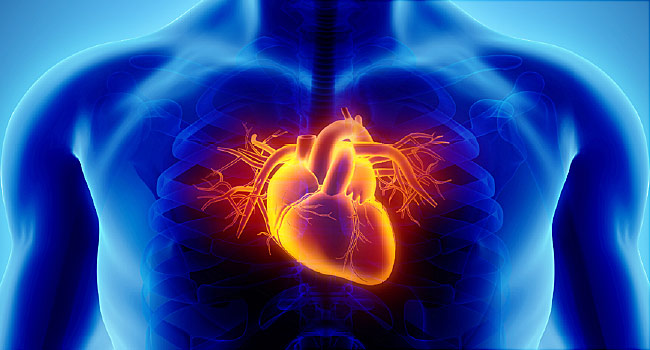Heart & Cardiovascular
Congenital Heart Disease
By I.K. (staff writer) , published on November 02, 2020

Medicine Telehealth Health Heart & Cardiovascular Congenital Heart Disease Congenital Heart Defect
Congenital heart disease, or a congenital heart defect, is a cardiac abnormality present at birth. The issue could impact the following:
- the heart walls
- the heart valves
- the blood vessels
There are several forms of congenital heart defects. They can range from basic disorders that do not trigger symptoms to complicated problems that cause extreme, life-threatening symptoms.
Types of Congenital Heart Disease
While there are several different types of congenital heart defects, they can be categorized into three major categories:
- In the case of heart valve defects, the valves within the heart that direct blood flow can close or leak. This interferes with the capacity of the heart to pump blood properly.
- In the case of cardiac wall defects, the normal walls that occur between the left and right sides and the upper and lower chambers of the heart may not form properly, allowing blood to return to the heart or to build up in areas where it does not belong. The defect places pressure on the heart to work harder, which can lead to elevated blood pressure.
- In the case of blood vessel defects, arteries and veins that bring blood to the heart and back to the body cannot operate properly. This can limit or obstruct blood flow, leading to a number of health complications.
Symptoms
Congenital heart disease is often diagnosed by ultrasound during birth. For example, if your doctor hears irregular heartbeat, certain tests might further examine the problem. This may require an echocardiogram, an X-ray of the chest, or an MRI scan. When a diagnosis is made, the doctor will make sure the qualified doctors are present during delivery. In certain cases, signs of a congenital heart defect may not occur until shortly after birth. Newborns with heart defects can undergo the following:
- bluish lips, skin, fingers, and toes
- breathlessness or trouble breathing
- feeding difficulties
- low birth weight
- chest pain
- delayed growth
Treatment
Treatment of a congenital heart defect depends on the form and nature of the defect.
Medications
There are different medicines that can make the heart function more effectively. Some can also be used to prevent blood clots from developing or to regulate irregular heartbeat.
Implantable Heart Devices
Some complications associated with congenital heart defects can be avoided by the use of such instruments, including pacemakers and implantable cardioverter defibrillators (ICDs). The pacemaker can help to control abnormal heart rate, and the ICD can correct life-threatening irregular heartbeat.
Catheter Procedures
The catheterization procedures enable doctors to correct some congenital heart defects without opening the chest and heart. During these operations, the doctor will inject a thin tube into the vein of the leg and direct it to the heart. When the catheter is in the right position, the doctor will use delicate instruments that are threaded into the catheter to correct the defect.
Open-Heart Surgery
This method of surgery could be required if catheter operations are not appropriate to correct a congenital heart defect. The surgeon may conduct open-heart surgery to close holes in the heart, to repair heart valves, or to broaden blood vessels.
References
https://www.ncbi.nlm.nih.gov/books/NBK209965/
https://pubmed.ncbi.nlm.nih.gov/25638345/
https://www.ncbi.nlm.nih.gov/gtr/conditions/C0152021/
Find articles related to: Medicine Telehealth Health Heart & Cardiovascular Congenital Heart Disease Congenital Heart Defect
More articles about Heart & Cardiovascular
Back to the Health Tips Index




